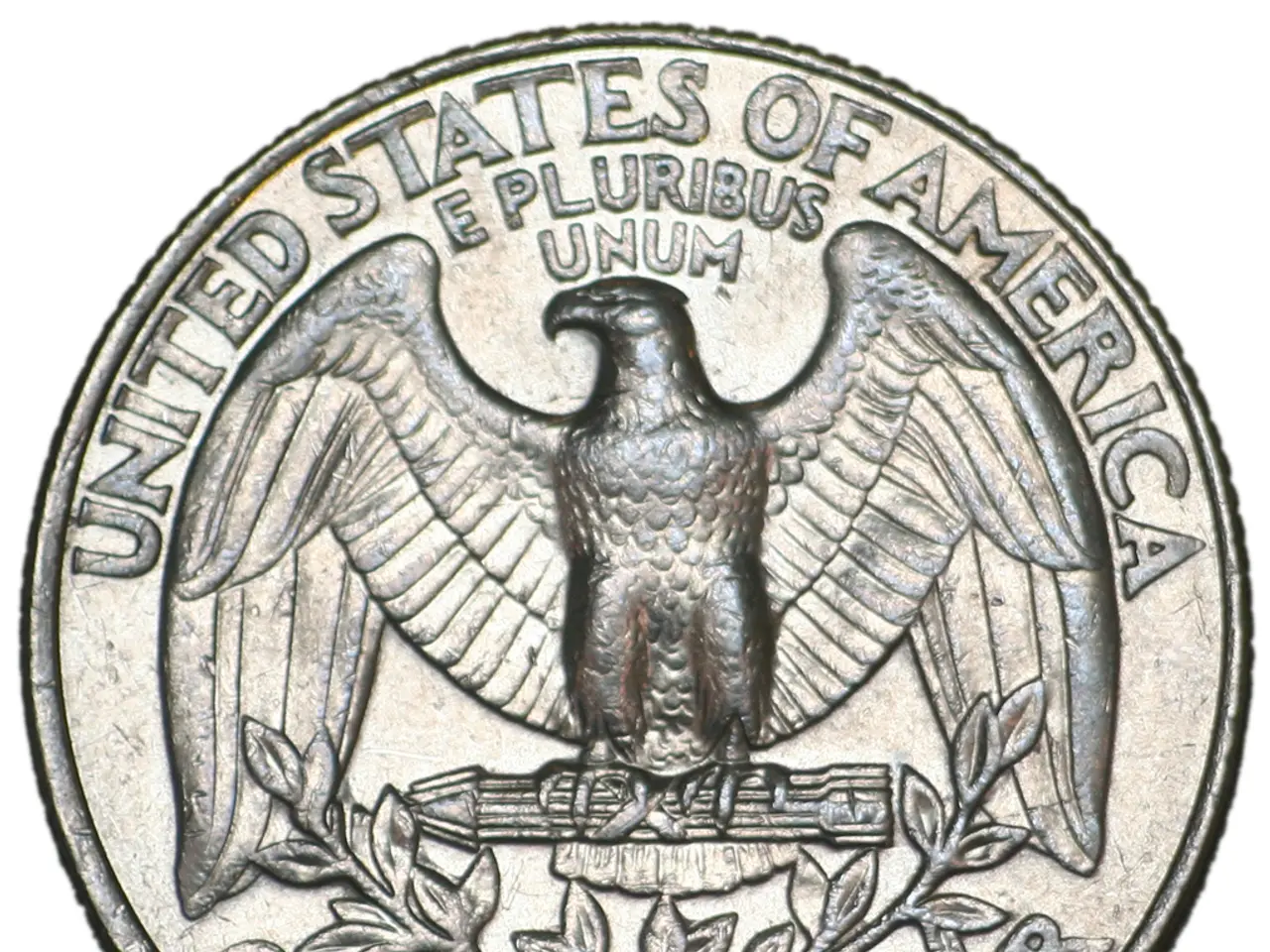Trump establishes way for private equity and cryptocurrency in retirement funds, explaining potential implications for your 401(k).
The recent executive order signed by President Trump in August 2025 has opened up a new frontier for retirement savings, allowing Americans to invest their 401(k) and related retirement plans in alternative assets such as private equity, cryptocurrency, and real estate.
This move could potentially offer more opportunities for retirement savers, as it provides greater diversification beyond traditional stocks and bonds, access to alternative asset classes with competitive returns, and expanded investment choices. However, these benefits come with risks that individuals must consider carefully.
One of the key potential risks is increased volatility and risk, especially with cryptocurrencies and private equity, which can be highly illiquid, opaque, and subject to valuation challenges. Regulatory uncertainties also remain, as the executive order calls for federal regulators to reexamine and possibly relax fiduciary rules but does not immediately change existing laws.
Fiduciary liability concerns for plan sponsors overseeing alternative investments without clear safe harbors or guidelines are another risk to consider. These asset classes generally require more complex due diligence and risk assessment than traditional funds. Additionally, alternative assets may involve higher fees and complexity, impacting net returns and participant understanding or access to adequate information.
Experts warn against these potential risks, particularly for less-informed investors. Transparency, education, and limits are necessary to prevent widespread harm and potential financial loss. Barbra Roper, director of investor protection at the Consumer Federation of America, shares these concerns.
On the other hand, the Securities Industry and Financial Markets Association (SIFMA) views the inclusion of private markets investments as a win for retirement savers. SIFMA believes that access to private markets investments, appropriately tailored under ERISA and SEC rules, could improve diversification and offer more investment choices for retirement savers.
The Department of Labor and other agencies have been directed to clarify fiduciary rules and provide regulatory guidance within 180 days to enable prudent evaluation and risk management of these investments. Employers may feel more comfortable adding alternative assets into their 401(k)s with updated guidance from the government.
For now, education and safeguards are seen as crucial, especially for younger investors and those without access to professional financial advice. As it stands, investing in crypto through 401(k)s is not common, and private equity is technically allowed in retirement plans but is rare.
The road to seeing changes in the inclusion of private assets in 401(k)s may take months. Critics argue that investing in private assets could put people at risk of losing a significant portion of their retirement savings due to less transparency and liquidity. However, supporters believe that with proper regulations and oversight, these assets could provide a valuable addition to retirement portfolios.
[1] Investopedia. (2021). 401(k) Plans. Retrieved from https://www.investopedia.com/terms/4/401k-plan.asp [2] Schaefer, A. (2021). Why Private Equity Belongs in Your 401(k). Retrieved from https://www.barrons.com/articles/private-equity-belongs-in-your-401k-51590576782 [3] Forbes Advisor. (2021). What Is A 401(k) Plan? Retrieved from https://www.forbes.com/advisor/investing/what-is-a-401k-plan/ [4] Better Markets. (2021). Cryptocurrencies in 401(k)s: A Risky Bet for Retirement Savers. Retrieved from https://www.bettermarkets.com/cryptocurrencies-in-401ks-a-risky-bet-for-retirement-savers/ [5] The Hill. (2021). Trump executive order could open door to private equity, real estate in 401(k)s. Retrieved from https://thehill.com/policy/finance/570735-trump-executive-order-could-open-door-to-private-equity-real-estate-in-401ks
- With the recent executive order, Americans can now invest their 401(k) savings in alternative assets like cryptocurrency, private equity, and real estate.
- This move opens up more opportunities for retirement savers, offering greater diversification, access to alternative asset classes, and expanded investment choices.
- However, these benefits come with potential risks, such as increased volatility and risk, regulatory uncertainties, and fiduciary liability concerns.
- Private equity and cryptocurrency may be highly illiquid, opaque, and subject to valuation challenges, making them riskier investments.
- Access to private markets investments, appropriately tailored under ERISA and SEC rules, could help retirement savers improve diversification and offer more investment choices.
- Fiduciary issues for plan sponsors overseeing alternative investments are a concern due to lack of clear safe harbors and guidelines.
- Less-informed investors should be cautious, as alternative assets may involve higher fees, complexity, and potential financial loss.
- Transparency, education, and limits are needed to prevent widespread harm and ensure adequate information for participants.
- The Department of Labor and other agencies are working to clarify fiduciary rules and provide regulatory guidance within 180 days.
- Proper regulations and oversight could make private assets a valuable addition to retirement portfolios, according to supporters, but critics argue that it may put people at risk of losing a significant portion of their savings.




